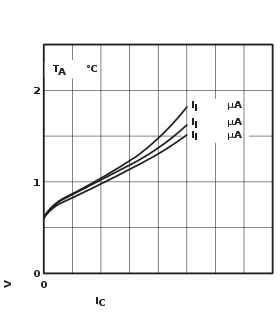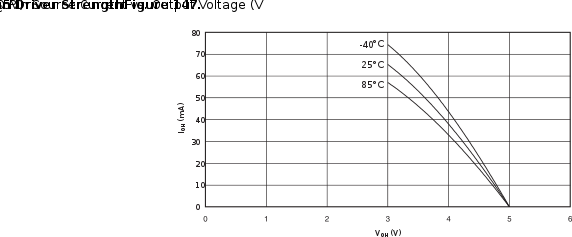LED Cube/Column Resistors in Detail
Choosing the right column resistors for your LED cube requires you to consider several factors:
- Suitability of the cube base for different colors
- Expected USB voltage
- Voltage drop on the microcontroller
- Voltage drop on the transistor array
- Voltage drop on the LED
For now, we are only interested in the resistor value for one specific LED color (and also only one type as a color may be created using different techniques which results in different forward voltages), thus only one LED forward voltage has to be taken into consideration. Also we assume that the USB voltage is 5.0 Volts which is okay, as we will see. Now we are at a situation where we have five volts which will be divided onto our components. Also, we are going to make this calculation only for 20 mA current per LED, however, you can make your own calculations quite easily. Let's have a look at the different I/V characteristics:
Parameters
uC
This is a snippet from the ATmega8/L datasheet:
You can clearly see the dropout voltage. In our example with 20 mA current, we have a dropout of 0.5 V.
LED
Dropout voltages for LEDs are somewhat more complex. Ranges can be found at Wikipedia. Commonly used values are:
| Color | Forward Voltage |
|---|---|
| Red | 1.9 |
| Blue | 3.0 |
| Green | 3.0 |
However, they do not only depend on the color, but also on the used technology. Thus it is a good idea to measure the forward voltage of your LEDs before you continue. (One might add that, specifically with cheap LEDs, even the LEDs within the same bag may have a very wide forward voltage range.)
For the sake of an example we will proceed with the 1.9 V drop for the red LED.
Transistor Array
The forward voltage drop in the transistor array is a little bit more tricky and shown in the following curve:
 This is a little bit annoying. Depending on how many LEDs we switch on, the voltage drop changes. For only one LED we have a voltage drop of about 0.7 V. For 9 LEDs we are already at 1 V. We will continue to calculate with the 0.7 V figure as we are interested in bright LEDs for now and we do not want to risk the increased current that will be the result of a reduced voltage drop.
This is a little bit annoying. Depending on how many LEDs we switch on, the voltage drop changes. For only one LED we have a voltage drop of about 0.7 V. For 9 LEDs we are already at 1 V. We will continue to calculate with the 0.7 V figure as we are interested in bright LEDs for now and we do not want to risk the increased current that will be the result of a reduced voltage drop.
Resistor
Now, we are finally able to calculate our resistor value. This is simply done by subtracting all dropuout voltages from the supply voltage and then apply U = R * I. So:
R = (Vcc - Vio - Vta - Vled)/I = (5.0 V - 0.5 V - 0.7 V - 1.9 V)/(20 mA) = 1.9 V / 20 mA = 95 Ohm
